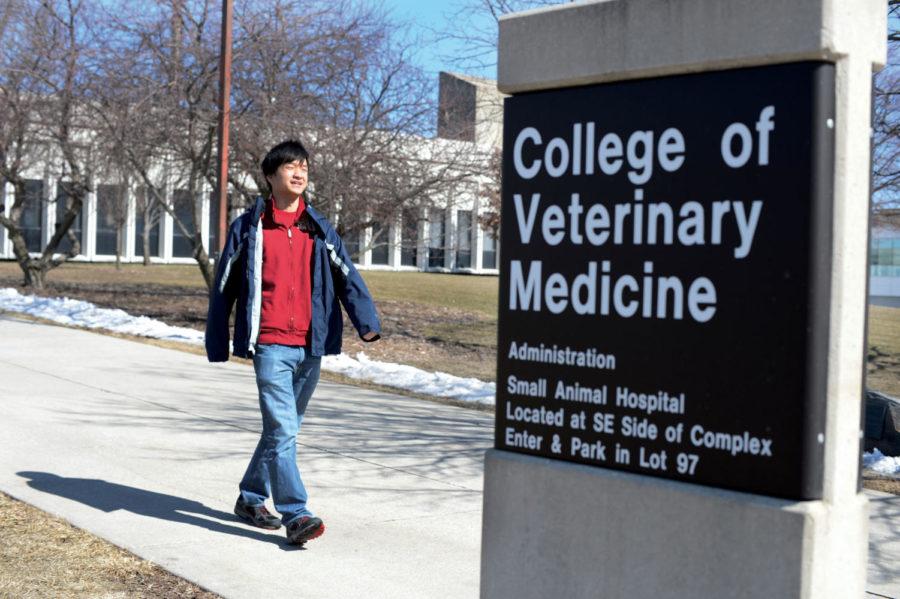Security heightened at the College of Veterinary Medicine
March 25, 2013
Iowa State’s College of Veterinary Medicine averages about 250 to 300 visitors each week. Because of such a high amount of traffic, the college, one of Iowa State’s oldest and strongest programs, has begun stepping up its security.
“The security measures were taken to increase building security and safety of our students, staff, faculty, clients and our patients,” said Renee Knosby, the college’s manager of business and operations.
October 2011 was when the project to secure the veterinary medicine facilities began.
The College of Veterinary Medicine’s main focus is to control the access of guests and visitors in and around their facilities.
“The steps taken were developed based on a comprehensive review of our current practices and in light of situations that have occurred at other universities,” Knosby said.
The changes that began over a year ago are still under way. Each month, the practices are reviewed based on input by students and faculty.
“There’s a lot of research that goes on out there,” said Warren Madden, vice president of business and finance for Iowa State. “Just an overall security of their laboratories, we need to do that. Around the country, that has become somewhat of a bigger issue and concern.”
Though the college has added checkpoints for visitors and increased door-to-door security, there is no active security presence at this point.
“One of the bunch of discussions that is currently going on is the possibility of adding, in essence, a public safety officer out there that would be there during the daytime [and] all the time,” Madden said. “Right now, there is no one specifically assigned to that location.”
The College of Veterinary Medicine is considered high-risk due to its location away from the rest of campus, along with the sensitive work they do there.
“There are drugs that are out there that are used as part of the College of Veterinary Medicine and the veterinary hospitals. So, they have an increased interest in being sure those are secure and safe,” Madden said.
Iowa State is not alone in re-evaluating the level of security within their programs. In schools across the country, the issue of security is becoming more important.
“Nationally, the issue of access to buildings in college campuses and public facilities, public schools, is a result of some of the incidents around the country. There are lots of people talking about what are the right level of procedures,” Madden said. “Iowa State right now, at least during the workday or class day, is a pretty open environment, and I don’t believe at this point we’re talking about increasing controls.”
On main campus, the level of security students are used to won’t be changing in the near future.
“[For] security in general, there’s just an increased, heightened awareness of the need,” Madden said. “We’re not exempt from those conversations, but I also don’t think we see there’s anything that’s happened here or that’s going on in the Iowa State environment that we think we need to be making major changes. Iowa State, I think, continues to be a relatively safe campus [and] safe environment.”







